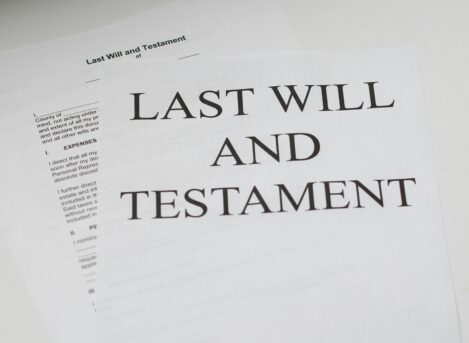The annual gift tax exclusion amount has increased for the second straight year. The IRS raised the exclusion amount for 2023 to $17,000 per recipient, up from $16,000 per recipient in 2022. In the recent past, adjustments were more sporadic — often going several years before an increase.
By using the annual gift tax exclusion judiciously, you can transfer assets to your loved ones and reduce the size of your taxable estate without eroding your federal gift and estate tax exemption. Consider taking advantage of this higher amount if you have significant wealth you want to transfer to family members. Here are the answers to some basic gifting questions.
How does the annual exclusion work?
Generally, gift tax is due when you give cash or property to another person. However, the annual gift exclusion can be used to cover certain gifts made during the year. If you exceed the annual gift tax exclusion limit, the excess may be sheltered by the gift and estate tax exemption.
Note that the exclusion amount is adjusted for inflation, but only in increments of $1,000. Rising inflation in 2022 resulted in a bump-up to $17,000 per recipient in 2023. Thus, you can pass even more assets to beneficiaries without any tax consequences, especially if you take a systematic approach.
For instance, if you have three adult children and seven grandchildren, you may give each one the maximum $17,000 in 2023 for a total of $170,000. Then you can do the same in the following four years. Assuming the maximum exclusion remains at $17,000 per recipient, you can pass a total of $850,000 by using this technique. And, depending on the circumstances, you won’t have to file a gift tax return.
Furthermore, the annual gift exclusion is available to each taxpayer. If you’re married and your spouse consents to a “split gift,” the exclusion amount is effectively doubled to $34,000 per recipient.
Want to make larger, tax-free gifts?
As previously mentioned, the gift and estate tax exemption can shelter gifts that are above the annual gift tax exclusion from taxation. Currently, the exemption effectively shelters $10 million from tax, indexed for inflation. The inflation-indexed amount of $12.06 million in 2022 has increased to $12.92 million in 2023. This amount is scheduled to revert to $5 million, plus inflation indexing, in 2026, unless Congress acts.
What gifts are tax-exempt?
Certain gifts are exempt from gift tax. This includes gifts that are:
- From one spouse to the other (unless the receiving spouse is not a U.S. citizen),
- To a qualified charitable organization,
- Made directly to a health care provider for medical reasons, or
- Made directly to an educational institution for a student’s tuition.
Also, you may take advantage of a special tax break for gifts made to a Section 529 plan for a student beneficiary. Essentially, you can give the equivalent of five years’ worth of gifts in just one year with no gift tax repercussions by “front-loading” the gifts. Note, however, that if you don’t survive for enough time after the gift is made, a portion of the gift will become taxable. Suppose, for example, that Jane made a gift of $85,000 to the 529 plan of a grandchild earlier this year. So long as she lives until 2027, no portion of the gift will be taxable.
Do you have a gifting strategy?
The annual gift tax exclusion amount is a powerful tool in your estate planning toolbox. Using it can provide a simple solution for transferring wealth to other family members. Contact your estate planning advisor with questions regarding your overall gifting strategy.
Sidebar: U.S. Tax Court rules on deathbed gifts
When is a gift complete? It may depend on prevailing local law. The issue often arises for “deathbed gifts” made by someone in failing health.
The U.S. Tax Court recently ruled on deathbed gifts. In this case, the deceased, a resident of Pennsylvania, authorized his son through a power of attorney to give gifts to family members in amounts not exceeding the annual gift tax exclusion. From 2007 through 2014, the son made annual gifts to his brothers and other family members.
In 2015, just five days before the father’s death, the son gave eleven checks to other family members out of an investment account, totaling $464,000. Some recipients deposited the checks before the father’s death, but others didn’t. Only one check was paid by the investment account before the father’s death.
Based on Pennsylvania law, the Tax Court said that the checks deposited before death are covered by the annual gift tax exclusion. However, any checks that weren’t deposited in time must be included in the deceased’s taxable estate. Demuth, TC Memo 2022-72, 7/12/22.








